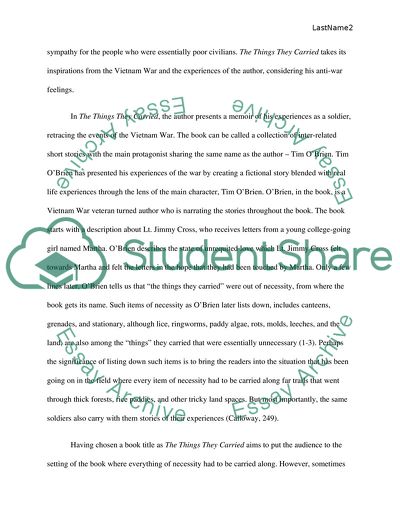Cite this document
(The Things They Carried by Tim OBrien Book Report/Review, n.d.)
The Things They Carried by Tim OBrien Book Report/Review. Retrieved from https://studentshare.org/history/1822316-research-paper-on-tim-obriens-the-things-they-carried
The Things They Carried by Tim OBrien Book Report/Review. Retrieved from https://studentshare.org/history/1822316-research-paper-on-tim-obriens-the-things-they-carried
(The Things They Carried by Tim OBrien Book Report/Review)
The Things They Carried by Tim OBrien Book Report/Review. https://studentshare.org/history/1822316-research-paper-on-tim-obriens-the-things-they-carried.
The Things They Carried by Tim OBrien Book Report/Review. https://studentshare.org/history/1822316-research-paper-on-tim-obriens-the-things-they-carried.
“The Things They Carried by Tim OBrien Book Report/Review”, n.d. https://studentshare.org/history/1822316-research-paper-on-tim-obriens-the-things-they-carried.


